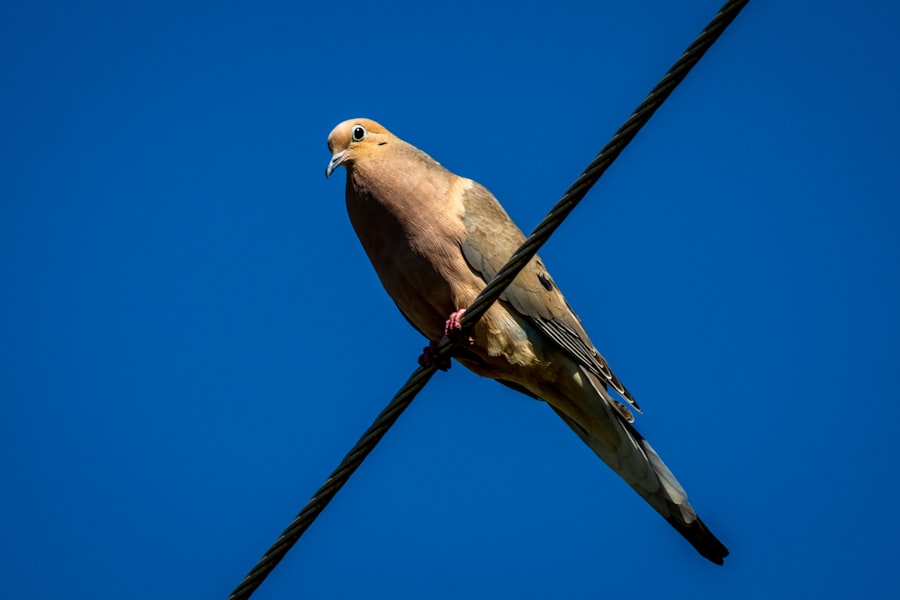When selecting chicken breeds for a backyard flock, several factors should be considered. Climate is a crucial element, as some breeds are better adapted to cold weather, while others thrive in warmer conditions. The intended purpose of the flock is also important, whether it’s for egg production, meat, or companionship.
Breeds like Leghorns and Rhode Island Reds are known for high egg production, while Cornish Cross and Plymouth Rock are suitable for meat production. Temperament is another significant factor, as breeds vary in their docility and friendliness. It’s essential to choose a breed that aligns with the keeper’s lifestyle and goals.
Space availability is a key consideration. For small backyards, compact breeds such as Bantams (e.g., Silkies or Sebrights) are suitable. Larger properties can accommodate bigger breeds like Orpingtons or Sussex, which are known for their foraging abilities.
In urban or suburban settings with close neighbors, quieter breeds like Australorps or Wyandottes may be preferable to minimize disturbances. Each breed has unique characteristics, and selecting the right one depends on a combination of environmental factors, available space, and the keeper’s specific requirements.
Table of Contents
- 1 Coop and Run Requirements
- 2 Feeding and Nutrition
- 3 Health and Safety
- 4 Egg Production and Collection
- 5 Handling and Socializing
- 6 Local Regulations and Resources
- 7 FAQs
- 7.1 What are the regulations for keeping chickens in Auckland?
- 7.2 What are the benefits of keeping chickens in Auckland?
- 7.3 What do chickens need to thrive in Auckland?
- 7.4 What are some common challenges of keeping chickens in Auckland?
- 7.5 How can I ensure the welfare of my chickens in Auckland?
Key Takeaways
- Consider the climate, space, and purpose of raising chickens when choosing the right breed for your backyard.
- Provide a secure and spacious coop and run for your chickens to roam and roost comfortably.
- Ensure a balanced diet for your chickens, including a mix of grains, protein, and fresh greens.
- Regularly monitor the health of your chickens and implement safety measures to prevent diseases and predators.
- Collect eggs daily and provide a clean and comfortable nesting area for your chickens.
Coop and Run Requirements
The Importance of a Well-Designed Coop
The coop is where your chickens will roost at night and lay their eggs, so it’s essential to provide a safe and comfortable space for them. When designing or purchasing a coop, it’s important to consider the size of your flock. Each chicken should have at least 2-3 square feet of space inside the coop, and there should be plenty of roosting bars and nesting boxes for them to use. Additionally, the coop should be well-ventilated to prevent moisture build-up and ensure good air quality. It’s also important to provide adequate insulation and protection from drafts, especially in colder climates.
Creating a Secure and Enriching Outdoor Run
In addition to a coop, your backyard flock will also need a secure outdoor run where they can stretch their legs and engage in natural behaviors like scratching and dust bathing. The size of the run will depend on the number of chickens in your flock and the amount of space available in your yard. As a general rule of thumb, each chicken should have at least 10 square feet of outdoor space in the run. It’s important to provide plenty of enrichment in the run, such as perches, dust bathing areas, and toys to keep your chickens entertained and mentally stimulated.
Predator-Proofing the Run
Additionally, it’s crucial to ensure that the run is predator-proof, with sturdy fencing and a secure roof to prevent attacks from predators like raccoons, foxes, and birds of prey. Providing a safe and comfortable coop and run is essential for the well-being of your backyard flock.
Feeding and Nutrition
Proper nutrition is essential for keeping your backyard flock healthy and productive. When it comes to feeding your chickens, it’s important to provide a balanced diet that meets their nutritional needs at each stage of life. A good quality commercial feed formulated specifically for chickens is a great foundation for their diet.
Look for feeds that are appropriate for either laying hens or meat birds, depending on the purpose of your flock. Additionally, it’s important to provide access to fresh water at all times, as chickens can quickly become dehydrated, especially in hot weather. In addition to commercial feed, it’s important to supplement your chickens’ diet with fresh fruits and vegetables, as well as kitchen scraps and garden trimmings.
Chickens are omnivores and enjoy a varied diet that includes grains, seeds, insects, and greens. Providing access to a diverse range of foods not only helps keep your chickens healthy but also encourages natural foraging behaviors. Additionally, offering calcium supplements such as crushed oyster shells can help ensure that laying hens have strong eggshells.
It’s important to monitor your chickens’ body condition and adjust their diet as needed to maintain a healthy weight and optimal egg production. By providing a balanced and varied diet, you can help ensure that your backyard flock remains healthy and happy.
Health and Safety
Maintaining the health and safety of your backyard flock is essential for their well-being and productivity. One of the most important aspects of chicken health is disease prevention. It’s important to practice good biosecurity measures to prevent the introduction and spread of diseases within your flock.
This includes quarantining new birds before introducing them to your existing flock, as well as regularly cleaning and disinfecting the coop and run to prevent the build-up of harmful pathogens. Additionally, it’s important to monitor your chickens for signs of illness or injury and seek veterinary care when necessary. Another key aspect of maintaining chicken health is parasite control.
External parasites such as mites and lice can cause discomfort and stress for your chickens, so it’s important to regularly inspect them for signs of infestation and take appropriate measures to control parasites. Additionally, internal parasites such as worms can negatively impact your chickens’ health and egg production, so it’s important to implement a regular deworming program as recommended by your veterinarian. In addition to disease prevention and parasite control, it’s important to provide a safe environment for your chickens to prevent injuries and accidents.
This includes ensuring that the coop and run are secure from predators, as well as providing adequate lighting and ventilation to prevent respiratory issues. Regularly inspecting the coop and run for any potential hazards such as sharp edges or loose wires can help prevent injuries to your flock. By prioritizing health and safety measures, you can help ensure that your backyard flock remains happy and healthy.
Egg Production and Collection
For many backyard chicken keepers, one of the primary benefits of keeping a flock is the fresh eggs they provide. To maximize egg production from your flock, it’s important to provide a comfortable and stress-free environment for your hens. This includes ensuring that they have access to a balanced diet, fresh water, and a clean nesting area where they can lay their eggs undisturbed.
In addition to providing a suitable environment for egg production, it’s important to establish a routine for collecting eggs from your hens. Most hens will lay their eggs in the morning hours, so it’s a good idea to check the nesting boxes daily to collect any eggs that have been laid. It’s important to handle eggs with care to prevent breakage and contamination.
Eggs should be collected promptly after they are laid and stored in a cool place until they are consumed. It’s also important to regularly inspect eggs for any signs of abnormality or illness in your hens. Abnormalities such as soft shells or irregular shapes can indicate nutritional deficiencies or health issues in your flock.
Additionally, it’s important to monitor egg production over time to ensure that each hen is laying consistently. By providing a suitable environment for egg production and establishing a routine for egg collection, you can enjoy a steady supply of fresh eggs from your backyard flock.

Approaching Your Chickens
When handling chickens, it’s important to approach them calmly and gently to avoid causing stress or injury. It’s best to handle chickens from a young age so that they become accustomed to human interaction. This can help reduce fearfulness and aggression in adult birds.
In addition to handling, socializing with your chickens can help strengthen the bond between you and your flock. Spending time with your chickens in their coop or run can help them become more comfortable around you and may even encourage them to approach you willingly. Providing treats such as mealworms or scratch grains can also help reinforce positive associations with human interaction.
Reading Your Chickens’ Body Language
It’s important to observe your chickens’ body language when interacting with them. Signs of distress such as flapping wings or vocalizations may indicate that they are feeling threatened or uncomfortable. It’s best to respect their boundaries and allow them to approach you on their own terms.
Local Regulations and Resources
Before starting a backyard flock, it’s important to familiarize yourself with local regulations regarding chicken keeping in your area. Some municipalities have specific ordinances regarding the number of chickens allowed per property, coop size requirements, noise restrictions, and other considerations. It’s important to research these regulations before starting your flock to ensure that you are in compliance with local laws.
In addition to local regulations, it’s helpful to connect with resources in your community related to chicken keeping. This may include local poultry clubs or organizations, agricultural extension offices, or online forums where you can connect with other chicken keepers in your area. These resources can provide valuable information on topics such as breed selection, coop design, health care, and more.
By familiarizing yourself with local regulations and connecting with resources in your community, you can ensure that you are well-informed about best practices for keeping a backyard flock in your area. In conclusion, keeping a backyard flock can be a rewarding experience that provides fresh eggs, natural pest control, and entertainment for the whole family. By carefully considering breed selection, providing appropriate housing and nutrition, prioritizing health and safety measures, maximizing egg production, handling and socializing with your flock, and understanding local regulations and resources, you can set yourself up for success as a backyard chicken keeper.
With proper care and attention, your backyard flock can thrive and bring joy to your household for years to come.
If you’re considering keeping chickens in Auckland, you may also be interested in learning about duck mating season. Poultry Wizard has a helpful article on when duck mating season occurs and how to prepare for it. Understanding the mating habits of ducks can be important for anyone looking to raise poultry in their backyard.
FAQs
What are the regulations for keeping chickens in Auckland?
In Auckland, there are regulations regarding the keeping of chickens, including the number of chickens allowed, coop requirements, and distance from neighboring properties. It is important to check with the Auckland Council for the specific regulations in your area.
What are the benefits of keeping chickens in Auckland?
Keeping chickens in Auckland can provide a sustainable source of fresh eggs, natural pest control in the garden, and a rewarding hobby for individuals and families. Chickens also produce high-quality fertilizer for gardens.
What do chickens need to thrive in Auckland?
Chickens in Auckland require a secure and predator-proof coop, access to fresh water, a balanced diet of feed and kitchen scraps, and space to roam and forage. They also need protection from extreme weather conditions.
What are some common challenges of keeping chickens in Auckland?
Common challenges of keeping chickens in Auckland include predators such as rats, cats, and birds of prey, as well as the risk of diseases and parasites. Additionally, noise and odor may be a concern for neighbors.
How can I ensure the welfare of my chickens in Auckland?
To ensure the welfare of chickens in Auckland, it is important to provide them with a clean and safe living environment, regular access to food and water, and appropriate veterinary care when needed. Regular monitoring of their health and behavior is also essential.
Meet Walter, the feathered-friend fanatic of Florida! Nestled in the sunshine state, Walter struts through life with his feathered companions, clucking his way to happiness. With a coop that’s fancier than a five-star hotel, he’s the Don Juan of the chicken world. When he’s not teaching his hens to do the cha-cha, you’ll find him in a heated debate with his prized rooster, Sir Clucks-a-Lot. Walter’s poultry passion is no yolk; he’s the sunny-side-up guy you never knew you needed in your flock of friends!







